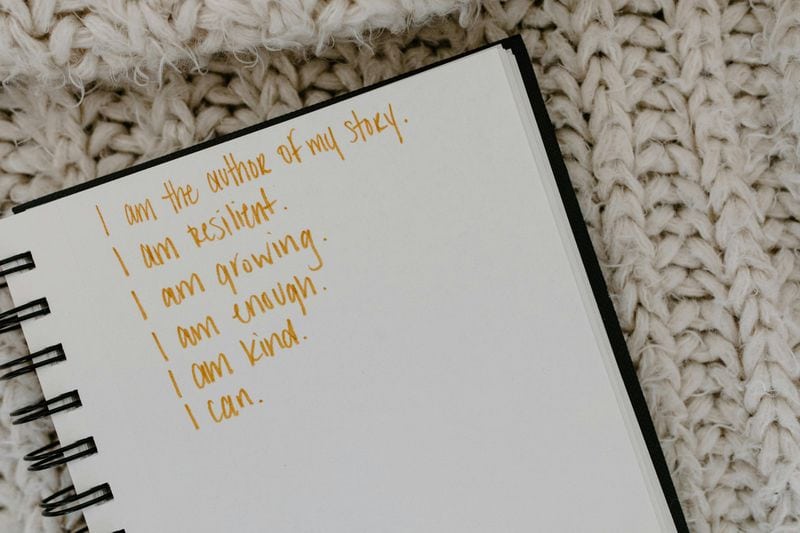Wellness bypassing happens when we use healthy habits to avoid dealing with our deeper emotional issues. Think of it as using your green smoothies and yoga classes as a shield against confronting painful feelings or past experiences.
While wellness practices are good for us, they shouldn’t replace proper emotional healing.
Recognizing when you’re using wellness as an escape rather than a complement to emotional growth is the first step toward true well-being.
1. Using Positive Affirmations to Mask Negative Emotions
Repeating mantras like “I am enough” while ignoring the voice inside that’s screaming the opposite isn’t healing—it’s hiding. Many wellness enthusiasts plaster their mirrors with affirmations but never address why they need constant reassurance in the first place.
True emotional work means sitting with uncomfortable feelings rather than immediately trying to transform them. Your meditation app can’t solve childhood trauma or relationship patterns that have been years in the making.
When affirmations become a way to avoid therapy or difficult conversations, they’re no longer tools for growth—they’re sophisticated emotional band-aids that eventually peel off.
2. Rigid Wellness Routines That Control Rather Than Heal
Morning routines have morphed from helpful habits into moral imperatives for many wellness devotees. The anxiety that strikes when you miss your 5 AM meditation or green juice ritual might signal you’re using wellness as a control mechanism rather than a healing practice.
Healthy habits should flex with life’s natural ebbs and flows. If your wellness routine causes more stress than it relieves when disrupted, you might be using it to create an illusion of perfect health while deeper issues remain unaddressed.
Rigidity often masks fear—fear of what might surface if you allowed yourself to simply be rather than constantly do.
3. Judging Others’ Healing Journeys While Avoiding Your Own
Becoming the unofficial wellness police in your social circle often indicates you’re more comfortable analyzing others than facing your own struggles. Ever caught yourself silently criticizing a friend’s coping mechanisms while your own emotional work remains untouched?
The wellness world can create hierarchies of healing—where some paths are deemed more enlightened than others. This judgment creates distance between you and authentic connections with others who might actually help you grow.
Genuine wellness embraces the messy, non-linear nature of healing and recognizes that everyone’s path looks different. Your friend’s therapy might be just as valid as your breathwork, even if it doesn’t come with a trendy Instagram hashtag.
4. Chasing Wellness Trends Instead of Consistency
From mushroom coffee to sound baths, your cabinet overflows with half-used wellness products that promised transformation. The constant pursuit of the next healing trend often masks a deeper reluctance to commit to the consistent, unglamorous work of emotional growth.
Wellness trends offer the allure of quick fixes—the idea that this one supplement or practice will finally solve everything. Meanwhile, the steady practices that actually create change—like therapy, honest self-reflection, or difficult conversations—get pushed aside for more exciting options.
Ask yourself: Am I collecting wellness experiences like badges, or am I truly integrating practices that support my whole being over time?
5. Using “High Vibes Only” as an Emotional Shield
“I don’t do negativity” might sound enlightened, but this attitude often serves as sophisticated emotional avoidance. The refusal to engage with anything that doesn’t feel good creates a fragile state of artificial positivity that crumbles when real challenges arise.
Authentic wellness includes developing resilience through facing difficult emotions, not just cultivating positive ones. Your anger, grief, and fear are not spiritual failures—they’re essential messengers about your needs and boundaries.
When you notice yourself quickly redirecting conversations away from anything uncomfortable or immediately reaching for a positive reframe, you might be using wellness philosophy to bypass the full spectrum of human experience.






